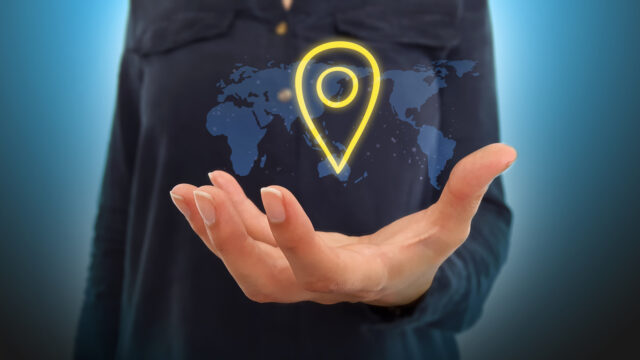
Whether you are launching a product in a new market or already have an international presence, then localisation is a crucial practice for you. If you want to effectively reach, engage and convert customers in a new market, you must present your product, brand and content in a way that they will not just recognise, but relate to. You need to prove that you understand the nuances of their culture, language and market in order to win those sales. Localisation is how you can get there.
Localisation is becoming increasingly important in a globalised market, where businesses can sell their products and services to pretty much anyone around the world.
What is Localisation?
Localisation refers to the process of adjusting your business or content according to the needs, customs and trends of your target market. This comes in many different forms, which we’ll explore in more detail now.

What Do You Need to Localise?
Localisation encompasses many different areas, and it’s not just your website that needs to be localised in order to suit your target market. Let’s look at the most important areas to consider when it comes to localisation.
Language
Language localisation is absolutely essential for any company wanting to successfully market their products to a country that speaks a different language to them. This kind of localisation isn’t simply about translating from one language into another. It’s about understanding the regional differences in dialects and vocabulary that will undeniably affect how effectively your business connects with new customers. You can find more information on global-lingo.com.
For example, Spanish is spoken in 20 different countries, but it doesn’t mean that translating your site into Spanish will be enough. In fact, you will likely need 20 different versions of your website for each Spanish-speaking market thanks to the huge variances in how Spanish is spoken across countries. This is where localisation comes in and can help your brand connect more authentically with your customers by showing them that you care enough about them to speak their language.

Branding
Many businesses may assume that branding must be uniform across all markets for consistency and brand association, however, this isn’t always the case. Things like colours, shapes and expressions hold different meanings across cultures and can be lost in translation, or even taken as an insult or obscenity, in some countries.
In cases whereby elements of your branding may be culturally insensitive or inaccurate, it will be useful to localise your branding slightly to better suit your market. This may be a simple slogan change, but could even affect things like your logo.
Images
Similarly to what we’ve discussed in regards to branding, imagery doesn’t hold universal meaning either. Localising images will include adjusting any images you use on your website or in your marketing efforts to align with social attitudes and values in your target market.
Technology
The technological aspects of your business are absolutely vital to localise when operating overseas. This includes everything from your website to your blog and any apps that you own.

Products and Services
In some cases, it may be necessary to adapt your product or service to your target market. For example, packaging for tangible products needs to be in the correct language. Even huge global countries alter their services depending on the market, such as fast food giant McDonald’s. Their menu adapts across the world according to the culture and tastes of customers in different markets. This is a form of localisation that has allowed McDonald’s to remain the number one choice for fast food no matter the country.
Marketing
You also need to localise your marketing efforts. The strategies and campaigns that work in your home market are not guaranteed to be effective in your new market. This is due to different social attitudes across the world. If you are launching your business in a market where there are significant differences in social attitudes, then you need to localise your marketing efforts and make sure that the way that you are promoting your product or service is seen as ethical and suitable.
Social Media
Social media is where your business has the chance to connect directly with your new market. This means that it’s one of the most important areas in which you need to show your customers that you understand them. Localising social media platforms means posting content that your audience will connect with, complete with accurate and engaging captions. It also means making sure that your accounts are run by native speakers who will understand the idiosyncrasies of your target market.

Why Localisation is So Important
Now we understand what kind of areas of your business you need to localise, let’s explore why this practice is so important for international ventures.
Building Trust with Customers
Firstly, localisation is the only way to effectively build trust with your customers, as they won’t trust you if you don’t prove that you are worthy of that trust. The way to show that is by demonstrating to your customers you understand them deeply, and care enough to learn about what they care about.
Establishing an Authentic Brand
Any brand that uses literal translations, lazy marketing or errors in its campaigns is one that will not be taken seriously. In order to establish credibility and authenticity in your target market, you need localised content that will connect with your audience. This is the only way to gain a reputation for quality and trustworthiness.

Providing a Competitive Edge
Lastly, effective localisation serves as a competitive advantage, especially if you are competing against other international brands. An authentic brand that understands its target audience deeply is one that will be able to consistently outperform other companies by winning the loyalty of customers.
Localisation is vital because it boosts your chances of success in international markets. By adapting your business to the needs and values of your target audience, you can establish better connections with them and therefore secure more sales. Localisation is vital for businesses wanting to achieve long term success in an international sphere.












